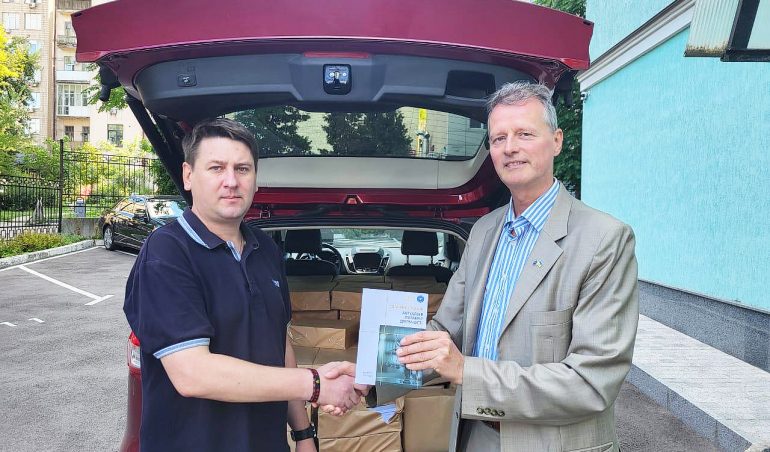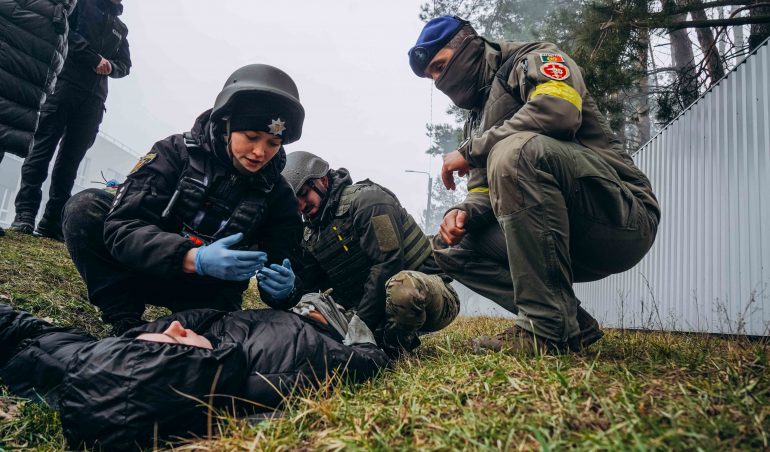Why LEAs and Judiciary Need Project Management Skills
March 08, 2024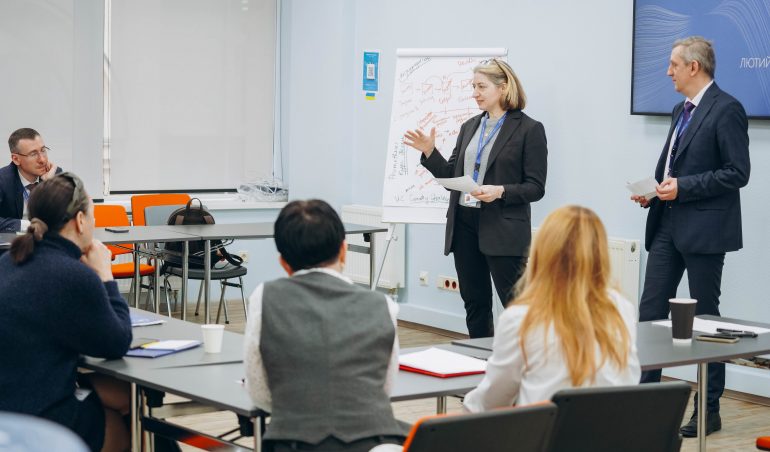
The European Union Advisory Mission (EUAM) Ukraine has wrapped up an extensive series of project management training sessions aimed at law enforcement agencies (LEAs) and judicial entities.
This initiative targeted especially those in de-occupied and adjacent territories, focusing on improving participants’ proficiency in project management. Through introducing basic terms, concepts, and methodologies, the programme aimed to equip the attendees with the necessary tools to initiate significant changes crucial for Ukraine’s European integration and specifically cater to the needs of de-occupied areas.
The last training session, conducted on Wednesday, 6 March, targeted the employees of the State Judicial Administration of Ukraine. Upon its completion, we spoke with Kirsten Joppe, the EUAM Head of the Good Governance Component, along with several participants, to gain insights into the programme’s success and objectives.
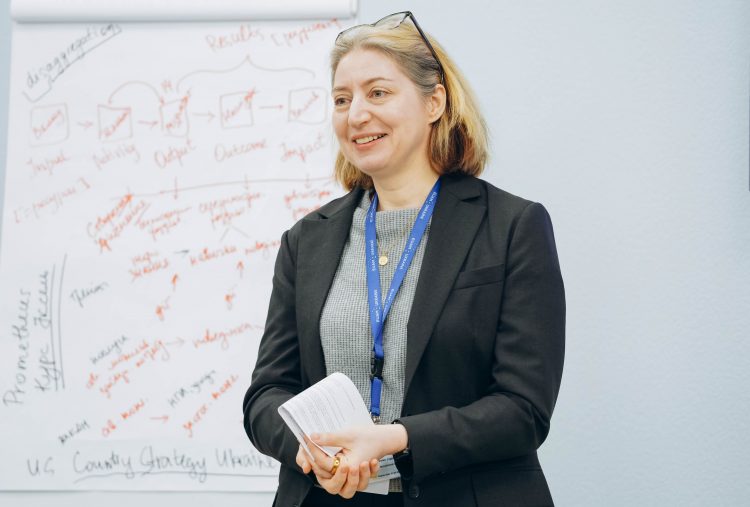
Q: Why do Ukrainian LEAs and judiciary need project management skills?
A: Project management skills are important for all our Ukrainian partners, especially in the context of reconstruction efforts and Ukraine’s path towards EU integration. Russia’s unprovoked and unjustified military aggression against Ukraine has increased the level of pressure on law enforcement agency staff in many ways. Our task is to support our Ukrainian partners in developing new skills that will help them deal with the enormous challenges that Ukraine faces now.
In the past four months, we trained on result-based management and project management 87 participants from various agencies including the Security Service of Ukraine (SSU), Prosecutor General’s Office (OPG), State Judiciary Administration (SJA), State Bureau of Investigations (SBI), National Police of Ukraine (NPU) and the Dnipropetrovsk State University of Internal Affairs. The participants will be able to apply the knowledge in their daily work.
Q: Was the initiative for this training EUAM’s, or was it a request from Ukrainian partners?
A: The project management course was requested by our civilian security sector partners and tailored according to their needs, in this case the SJA. After the first round of trainings in summer 2023, our partners expressed the wish to extend the training, and we also ensured coverage of other regions through our implementing a course in Dnipro, where we trained participants from several agencies from Dnipro, Luhansk, Donetsk and Zaporizhzhia regions.
Q: What were the main goals of this training session for SJA?
A: The main goal of this training course was to improve the SJA’s staff’s knowledge of the project management and strengthen their capabilities to manage various projects efficiently and effectively in their daily work. The tailor-made training covered the essential aspects of project management, including best practices and methodologies. It also included practical exercises and case studies.
Q: How were the participants for this training selected, and what criteria were used to ensure they would benefit most from the program?
A: In all our capacity building measures, EUAM tries to ensure equal representation of participants. For the SJA training course, 10 female and 4 male representatives of SJA signed up from middle management and non-managerial positions.
Q: How does EUAM evaluate the impact of such training programs on the capacity and resilience of Ukrainian civilian security sector agencies?
A: After each training course, we ask for detailed feedback from the participants to ensure that we consider lessons learnt. Of course, the aim of the course is to increase the project management skills of participants, but we can only be successful if participants continuously practice what they learn, whether in their professional life. This is why we will connect with our Ukrainian partners to seek feedback on how the new knowledge is being applied, and how we can ensure that the knowledge and skills are cascaded in future programs. It should be emphasised that the recent trainings were implemented based on the need to urgently upskill staff in this area. Now, we look forward to discussing further project management training needs with our Ukrainian partners, including sustainability aspects.
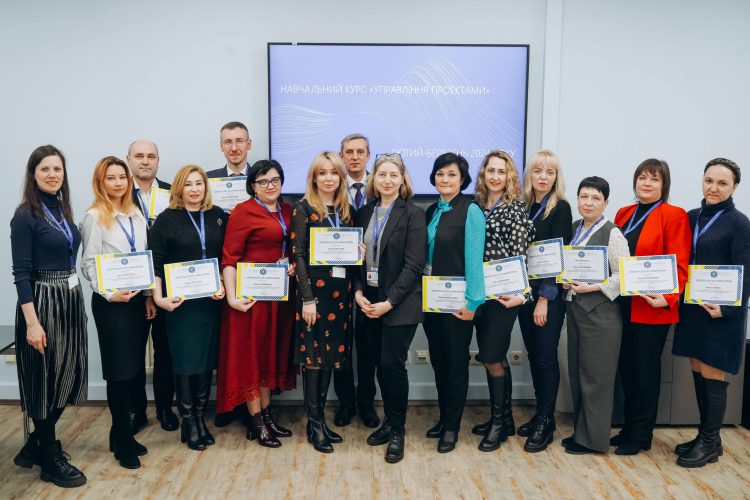
A Word to the Participants
Following the sessions, we conducted brief interviews with several participants to capture their insights and reflections on the program’s relevance, learning outcomes, and potential applications in their work. Their responses shed light on the immediate benefits and long-term implications of their newly acquired project management skills.

Tetiana Opanasyuk, Head of the Legal Department, SJA
Q: Was this training relevant and beneficial for you? Why?
A: Absolutely, it was both relevant and beneficial. The world is changing, and we must evolve with it. The training enriched my understanding and equipped me with new project management skills, crucial not only for my professional growth but also for my personal development.
Q: What new knowledge did you gain?
A: I acquired insights into project management, communication, risk, and resource management. Now that I understand my strengths and weaknesses better, I find the training exceptionally meaningful and engaging.
Q: What stood out to you during the training?
A: The topics on communication, managing resources, risks, and changes were particularly memorable. Our trainer, Natalia, was very charismatic, making an indelible mark with her approach to result-oriented management.
Q: Would you recommend this training to your colleagues?
A: Definitely. Given the constant changes and the current challenges Ukraine faces, skills in project management are increasingly vital. This training can profoundly transform our thinking and, by extension, our country, bringing us closer to European standards.
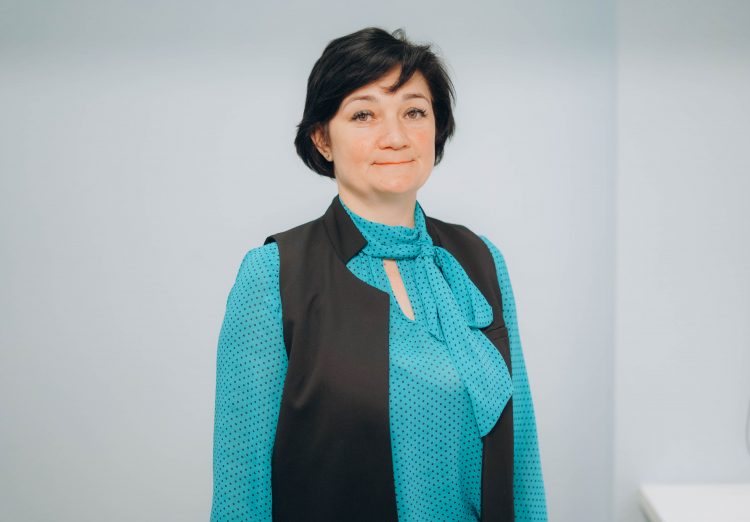
Olena Ihnatenko, Head of the Department for Information-Analytical Work and International Cooperation, SJA
Q: What new skills did you acquire?
A: I learned practical project management skills and the theory of change, which can be applied organizationally. Writing project documentation skills will allow for better planning and evaluation of activities.
Q: What was the most memorable part of the training?
A: The practical exercises and the detailed discussions on various topics with colleagues were particularly impactful. Observing the analytical and creative approaches of both the trainer and participants was enlightening.
Q: How do you plan to utilise this knowledge moving forward?
A: I will apply this knowledge in planning work with development projects, implementing other projects, and in our interactions with the European Union’s initiatives. This training has equipped us to organise better and systematise our future endeavours.

Olena Panfiorova, Advisor to the Head of the SJA
Q: What was your key takeaway?
A: Learning about the project’s phases, components, and milestones was enlightening. The tools and methods for tracking progress and ensuring the project’s schedule and budget alignment were particularly useful.
Q: What will you remember most about the training?
A: The structuring and formulation of project stages and the practical tools and charts that linked the stages together were memorable. The planning for potential risks and the strategies for their mitigation also stood out.
Q: How will you apply this knowledge in your work?
A: I plan to employ the skills and knowledge gained to enhance the quality and effectiveness of our environment. This includes detailed project planning and understanding the documentation and stakeholder engagement essential for successful project management.
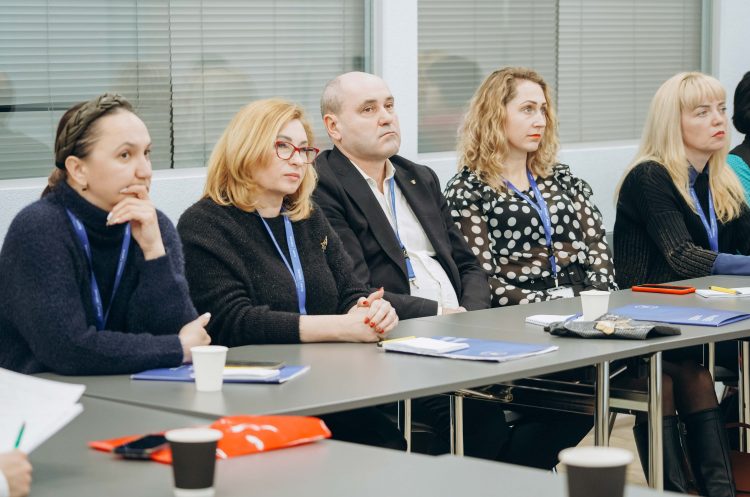
This series of training sessions not only aimed to improve the immediate project management skills of the participants but also to foster a long-term impact on their capacity to manage and implement projects effectively.
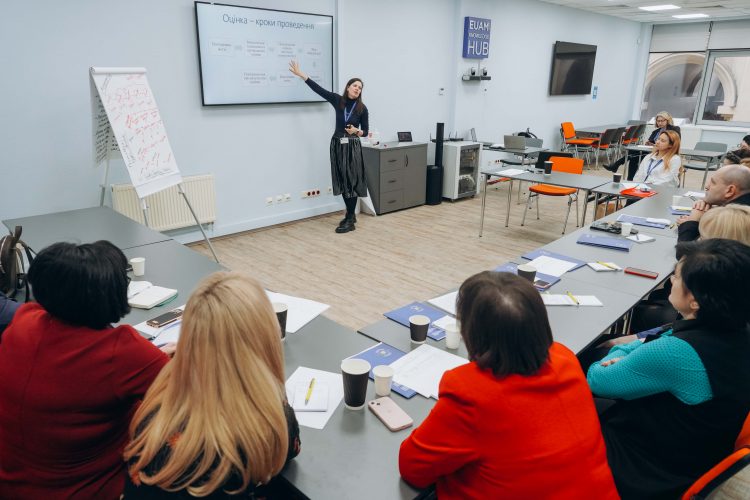
As Ukraine continues towards EU integration, the skills and knowledge imparted through these sessions will undoubtedly contribute to the resilience and efficiency of its law enforcement and judicial bodies.


